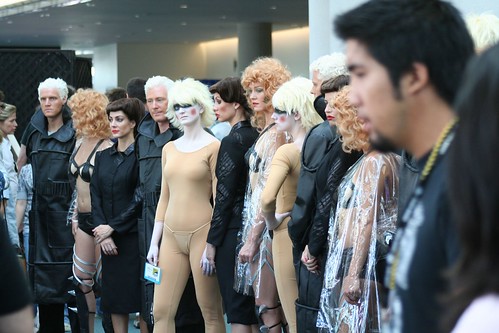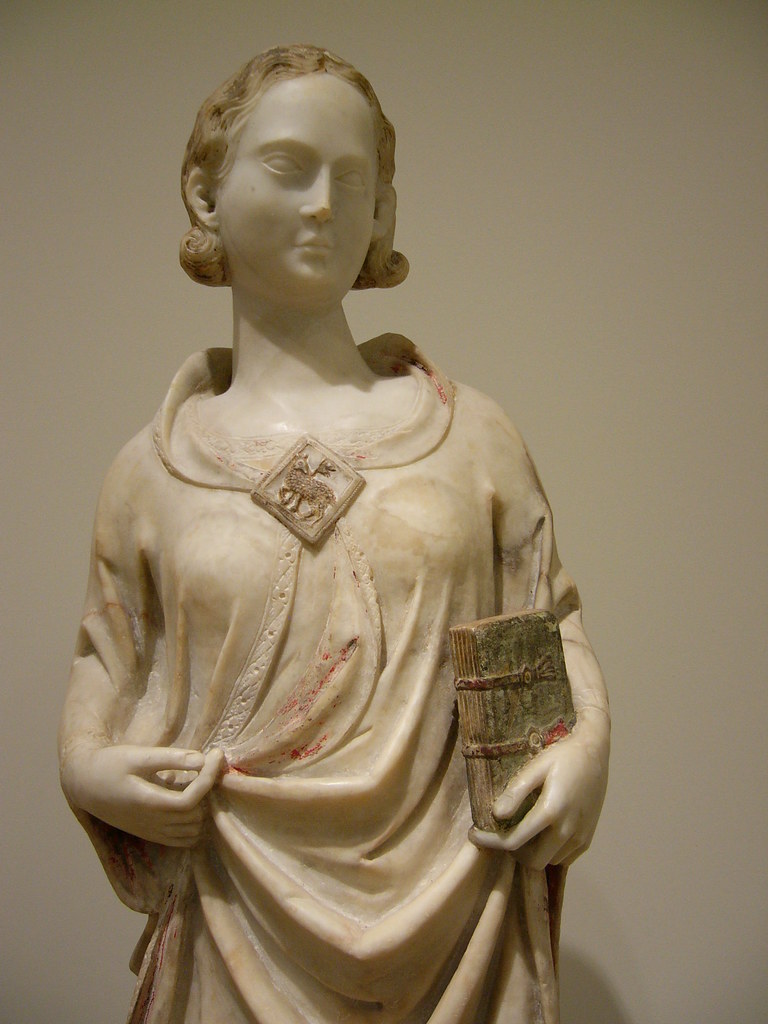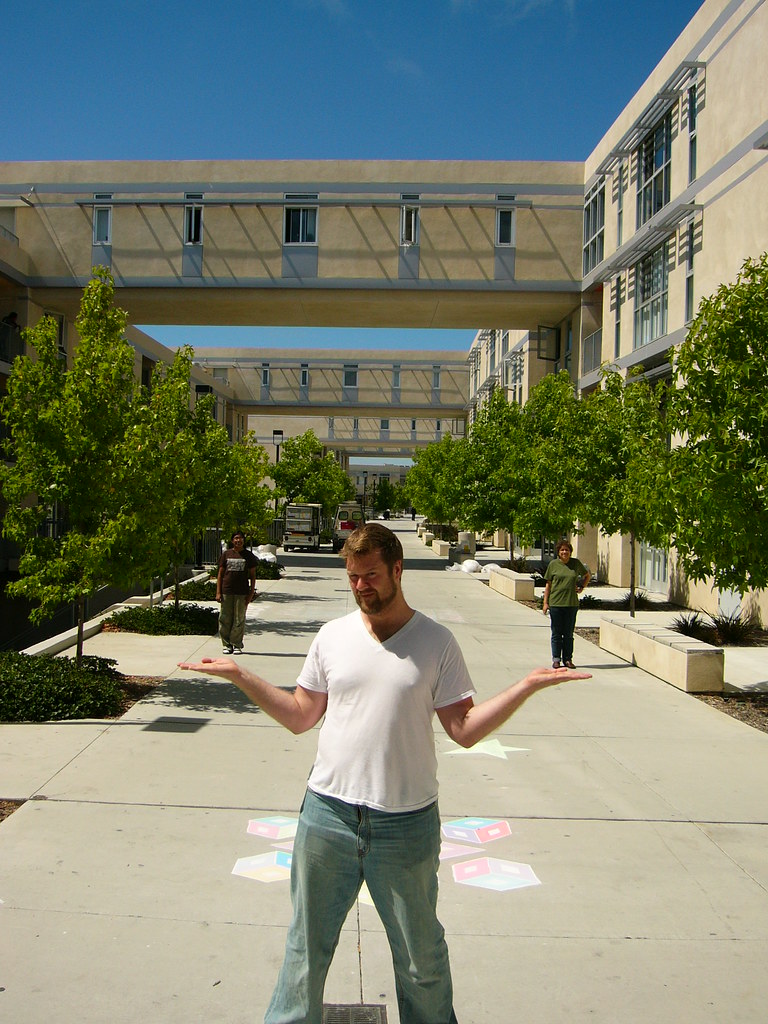
Last night I listened to my favorite soundtrack album, the soundtrack to
Wim Wenders'
Until the End of the World. Normally I strive to be industrious, but last night I just listened to the entire album, start to finish.
Until the End of the Worldwas made in 1991, but set in 1999.
Wim Wenders asked the musicians to give him a song that would sound like the music they would be making in 1999. Although they are by different musicians, the songs on the album have a similar flavor. Many are spare and have an emotionally detached quality. Many share a strangely
empty quality, and don't feel like other music by these artists.
The soundtrack has a lot of the knights of alternative rock, everyone but David Bowie. I bought the soundtrack for Peter Gabriel's
Blood of Eden, which underscores a sequence in which--after the two leads travel across ten countries using countless different technologies for travel and communication--all electronics are wiped out by a rogue
satellite reentering the atmosphere, and they walk,
walk through the Australian outback. When I got the CD home, I checked the track list several times before I could accept that
Blood of Eden wasn't actually on the album!
The film has some strange and haunting lines in it. I can still hear William Hurt saying, with his characteristic halting delivery
This camera takes pictures that blind people can see.
There's a song on the album by
Depeche Mode called
Death's Door. I was waiting for
Death's Door, t
hinking that when I heard the song, it would somehow inspire me to find the solution to a short story I've been struggling over.
Until the End of the World is one of those enticing, frustrating, fascinating movies that you can never see in the definitive version, because of bad blood between filmmaker and studio or distributor. With these movies, the version you see is only a battered signpost pointing to the
real version, which you can never see, because it is forever retreating over the horizon of possibility.
Orson Welles, with all his unfinished, mangled masterpieces, is the ultimate auteur of this particular genre of post-modern cinema.
Wenders' original cut of
Until the End of the World was 8 hours. But he was bound by contract to deliver a film under 3 hours. The version that was released was 158 minutes. It felt long when I saw it; long and vague and cold, though beautiful, and like all
Wenders' films, filled with enduring imagery and ideas.
I have a feeling the 8 hour version probably feels tighter and quicker and more engaging than the pruned version I saw. But I would be content to see the 280 minute version
Wenders considers definitive. It has been shown only a few times. I sense that
Wenders has fallen from grace with the supporters he won with his road movies and his
angel movies, which are canonical
arthouse cinema. Maybe I have drifted from him too, though recently I watched a short documentary he did about
Yohji Yamamoto and was right back under his spell.
Last night I was telling Matt about
Solveig Dommartin, how she was so beautiful, but ordinary looking, like Ingrid Bergman. She co-wrote and acted in
Until the End of the World, was Wenders' partner, and was in the two celebrated angel movies. I looked online today on my
lunch to see if
Until the End of the World was available in its longer version and found a reference to the late
Solveig Dommartin.
It's shocking when someone young dies, someone you unconsciously counted on to be around. When I feel discouraged I try to remember how fragile life is, what a
privilege it is just to exist. I try to spur myself to write by telling myself how temporary my mind is. But on some level I feel that we are all granite, or at least the people that matter to me in one way or another are granite, permanent.
Solveig Dommartin died fifteen days ago of a heart attack, and it's hard to believe there could be such an early end for the beautiful, athletic body-- that mastered the acrobatic stunts of the angel movies so quickly-- and the mind-- that helped imagine a camera for recording dreams, and taking pictures blind people can see.








































My camera was broken so the Comic Con photos you see in this post and the two that follow are from Flickr!, which offers multifarious points of view not controlled by big media. I love Flickr! It feeds my image addiction without enslaving me to consumerism.
The crowd of Blade Runner fans above was possibly the most miraculous thing I saw at Comic Con. Like the film they idolize, these fans stand at the nexus of hipness and nerddom. They are obsessed and geeky, yet magnetic and beautiful. Blade Runner is such a lovely film, it has the power to unite subcultures.
The Blade Runners at the Con were three times as numerous as the group you see in the photo. I was coming down the escalator when I saw them, assembled to honor the 25th anniversary of the film. The men were genuinely handsome, and the women were beautiful. I looked and looked, astonished that so many of them lived up to my expectation of what the perfect android characters of the film should be.
Unlike Sean Young, Rutger Hauer, Darryl Hannah, and Joanna Cassidy-- forever preserved in cinema-- these mortal fans will change. Few will remember the glamor they gave off as they stood at the base of the escalator in the San Diego convention center. This thought satisfied my taste for the elegiac, and gave me a pleasing melancholy buzz as I walked past them.